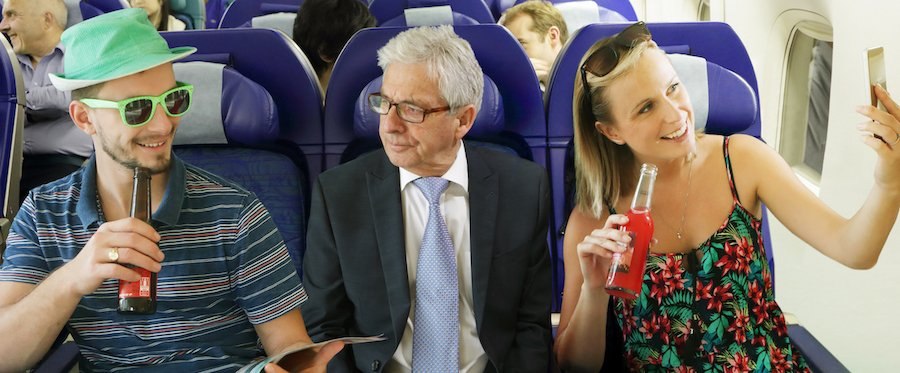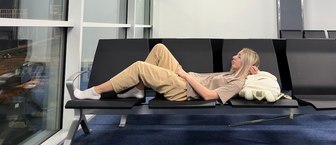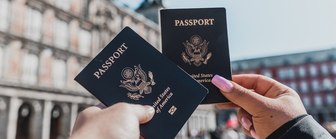Conflict in the air is common, with planes full of people feeling strongly about the dos and don'ts of passenger behavior. We recently asked Americans about the acceptability of 30 potentially contentious behaviors by airline passengers, and found that there is agreement on many — but not all — aspects of in-flight etiquette.
The most divisive behaviors – ones that about as many Americans say are acceptable as unacceptable for passengers to do — include making a phone call, bringing a small dog on board, unbuckling their seatbelt when the seatbelt light isn't on, and leaving their overhead light on when the cabin lights are switched off.
There's widespread agreement against lots of plane behavior. At least 80% of Americans agree that it's unacceptable for commercial airline passengers to do each of the following: to let their children play in the aisle, to get drunk, to leave their seat during turbulence, and to watch a movie or show without headphones. Other common pet peeves include other passengers leaving behind trash in the seatback pocket, using both armrests, eating strong-smelling food, and exiting the plane before the people in the row in front of them.
Meanwhile, majorities of Americans are OK with many other airplane actions by passengers: using a laptop on the tray table, waking up a seatmate to use the bathroom, and pushing the flight-attendant call button to request refreshments. At least half say each of the following is acceptable for passengers to do: closing the window during takeoff or landing, reclining their seat, putting small items in the overhead compartment on a full flight, and asking to switch seats with another passenger.
Opinions on some plane behavior vary by how often someone flies. People who say they fly commercially at least once a year are more likely than people who never fly to say it is unacceptable to make a phone call while in the air (56% vs. 30%) and to put small items in the overhead compartment on a full flight (43% vs. 19%). On the other hand, frequent fliers are more likely than people who never fly to say it's acceptable to not pay attention during the safety demonstration (32% vs. 16%).
Related:
- Unpacking guest behavior: What do Americans think is acceptable at hotels?
- The unwritten rules of eating out: What Americans think about restaurant etiquette
- Minding their manners: Do Americans follow traditional dining etiquette?
- What not to do on an airplane
- Airport security: Despite the inconvenience, most Americans say it's effective
— Carl Bialik contributed to this article
See the results for this YouGov poll
Methodology: This poll was conducted online on May 23 - 26, 2024 among 1,152 U.S. adult citizens. Respondents were selected from YouGov’s opt-in panel using sample matching. A random sample (stratified by gender, age, race, education, geographic region, and voter registration) was selected from the 2019 American Community Survey. The sample was weighted according to gender, age, race, education, 2020 election turnout and presidential vote, baseline party identification, and current voter registration status. Demographic weighting targets come from the 2019 American Community Survey. Baseline party identification is the respondent’s most recent answer given prior to November 1, 2022, and is weighted to the estimated distribution at that time (33% Democratic, 31% Republican). The margin of error for the overall sample is approximately 4%. Some items included in the survey are not presented in this article.
Image: Getty (Peter Cade)













